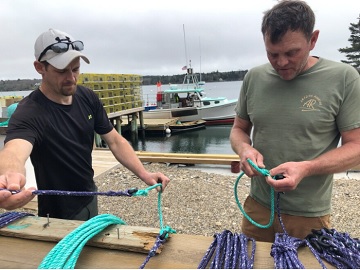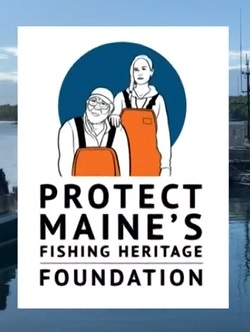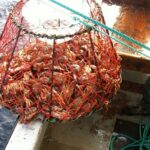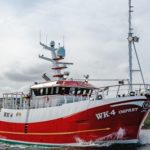Tag Archives: Maine Department of Marine Resources

Maine to get $1.2 million for lobster gear research and communications tools
Maine’s lobster industry will benefit from $1.2 million in federal funding to study the potential impacts of new regulations on fishing gear. The money comes from the National Oceanic and Atmospheric Administration’s Sea Grant American Lobster Initiative. The Maine Department of Marine Resources will get $750,000 to test and evaluate lobster gear modifications that could be required under a proposal from NOAA to protect endangered right whales. Just over $400,000 will go to the Gulf of Maine Lobster Foundation to provide lobstermen with on-board computers, sensors and other technology to help them collect data and images. >click to read< 08:32
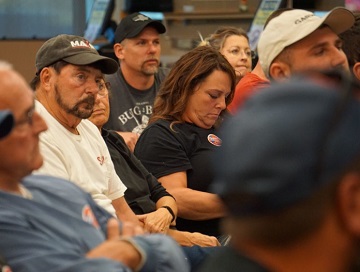
Fishermen reeling as further whale protection measures fast tracked
Maine lobstermen worry that their fate is sealed. Dozens gathered Tuesday evening in the Ellsworth Elementary-Middle School cafeteria for a livestream of a NOAA Fisheries scoping session on modifications to the Atlantic Large Whale Take Reduction Plan. Hundreds more participated online. Spurred by a recent court ruling, federal regulators are fast tracking plans to achieve a 90 percent reduction in entanglement risk. “These are measures that are going to really hurt and there were measures that were put forth that look really bad that didn’t come close to 90 percent, so I want people to realize that this is real, that this is coming and it’s not going to be pretty,” said Kristan Porter, president of the Maine Lobstermen’s Association and an Atlantic Large Whale Take Reduction Team member. >click to read< 10:15

On The Ropes – Federal court rules against lobster industry in appeal of whale protection regulations
“Obviously, it’s devastating to the lobster industry,” Stonington Town Manager Kathleen Billings told the Islander. Stonington lands by far the most lobsters in the state. In total, Maine lobstermen added an estimated $724,949,426 worth of lobster landings to the state commercial fishery in 2021. “We have a lot at stake,” Billings continued. “[Lobstering] makes up $60 [million] to $70 million to our economy and to have this recent ruling, and also too with the Seafood Watch list designation, they pretty much put a torch to our industry and burnt it to the ground for us.” >click to read< 08:55
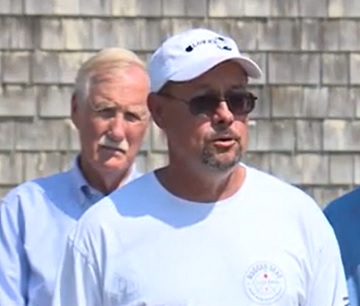
Maine lobstermen, politicians rally in protest of fishing restrictions and Seafood Watch’s recommended boycott
At a rally in Portland’s Old Port on Friday, they protested a federal judge’s ruling issue Thursday allowing the National Marine Fisheries Service, a branch of the National Oceanic and Atmospheric Association to impose limits on where and how lobstermen fish in order to protect endangered North Atlantic Right Whales. The rally was also protesting Seafood Watch, a California-based sustainable seafood advocacy group affiliated with the Monterey Bay Aquarium, now recommending food distributors and restaurants boycott Maine lobster in the name of saving the whales. Video, >click to read< 09:55

Fishery interests urge judge to rule in lobster lawsuit
Parties in a lobster industry lawsuit filed against federal regulators are urging a judge to make a decision in the case because its outcome affects a parallel case that the parties have to act on. The federal judge considering this decision was the same who ruled last month that new regulations to protect endangered right whales do not go far enough and violate both the Endangered Species Act and Marine Mammal Protection Act. In that case, U.S. District Judge James Boasberg asked the parties to propose remedies. The lobster association’s case takes aim at newly enacted and proposed federal regulations to protect the whales, which the association says are invalid because they are based on flawed assumptions and calculations. The parties need to know the court’s opinion so they can develop proposed remedies that Boasberg ordered in the parallel lawsuit brought by conservation groups. >click to read< 17:01

Fishery regulators will discuss possible rise in minimum lobster size
Fishing regulators will gather in Virginia next week to talk about the potential of raising the minimum size lobsters need to be in order to be harvested by New England fishermen. The Atlantic State Marine Fisheries Commission’s lobster management board is meeting on Tuesday to discuss the implications of a proposal that would install new minimum size limits and other regulations for the crustaceans, either gradually over time or triggered by lobster populations dipping below a certain level. The proposal was drafted to protect the lobster population as surveys show indications of potential future decline. The idea has rankled many Maine lobstermen,,, >click to read< 09:25
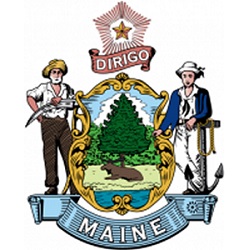
Governor Mills Announces Cost Relief for Maine’s Commercial Fishermen and Aquaculturists
The Maine Department of Marine Resources (DMR) will use $8.3 million in Federal funding to reimburse resident commercial fishermen, dealers, processors, and aquaculturists for the cost of their 2022 licenses, as well as additional fees associated with licenses such as trap tag fees for lobster license holders. The Department will also waive lease fees for active commercial leases for the 2022 lease year through a separate process. The first round of payments, which amount to $4.2 million, will be mailed by the end of this month for license holders who purchased their license between November 15, 2021 and March 31, 2022. Reimbursements for licenses purchased during each of the remaining quarters of 2022 will be mailed separately. >click to read< 16:45
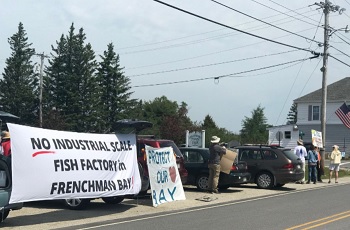
American Aquafarms appeals DMR lease application decision
American Aquafarms has appealed a recent decision by the Maine Department of Marine Resources to terminate two lease applications for a proposed salmon farm in Frenchman Bay. American Aquafarms (AAF) is asking the court to vacate the DMR’s decision and send the applications back to the department for continued consideration. The DMR, in a statement, said it stands behind its decision to terminate the lease applications. The reason for termination, according to the DMR, lies in the proposed egg stock that American Aquafarms had listed in its application. >click to read< 09:41
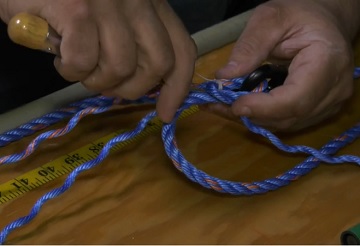
Maine Lobstermen should see flexibility in enforcement of new NOAA gear rules
The deadline for lobstermen to comply with new regulations meant to protect North Atlantic Right Whales has come and gone. State officials estimate that 50% to 60% of federal lobster fishery permit holders are not yet fully compliant with new rules requiring either new “weak rope” or plastic weak links be spliced into existing end lines. Supply chain issues are a big reason why. While they declined to move the May 1st deadline… NOAA recently announced they would allow a quote graduated enforcement effort that will focus on compliance assistance rather than civil penalties. Video, >click to read< 09:48

2021: A Year of Historic Value for Maine Commercial Fishermen
On the strength of an historic year for lobster and a rebounding elver fishery, the value of Maine’s commercially harvested marine resources in 2021 reached an all time high at $890,668,873. According to recently released data from the Maine Department of Marine Resources, the overall value earned by harvesters in 2021 jumped by more than $365 million and exceeded the previous overall record of $733,691,455, set in 2016, by $150 million. >click to read< 09:30
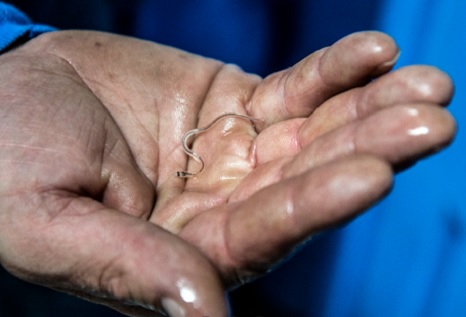
Lincoln County a Growing Force in Maine’s Elver Fishery
The elver fishery is the second most valuable fishery in Maine despite its brief season, lasting only 11 weeks from March 22 to June 7. Recent years have seen annual income generated by the fishery exceed $20 million. And from a per pound perspective, it easily tops lobsters as the most lucrative fishery in the state, and possibly in the country. The demand for elvers is driven by the overseas market where baby eels are grown to size in specially designed aquaculture facilities for use in Asian cuisine. Once mature, the eels are also processed and shipped back to the U.S. where they are a popular dish on sushi menus. While still in its infancy, U.S. based eel aquaculture is poised to be another factor in the fishery. photos, >click to read< 15:24

“I guess they’re too weak.” Weak lobstering gear recalled as new whale regs approach
The weak link made by Plante’s Buoy Sticks was pulled off shelves by the company this week, taking away one of the handful of gear options at lobstermen’s disposal to meet new federal rules that go into effect May 1. One retailer said their shop was told the links were believed to be breaking too easily. Plante’s links are one of three models approved by NOAA,,, Virginia Olsen, Maine Lobstering Union, said she sent a notice to her members about the issue and hoped the recall would prompt NOAA to review allowing fishermen the easier option of putting knots in their ropes to make them weaker. “It truly would be a great assistance to us if those knots were acceptable,” she said. >click to read< 14:21
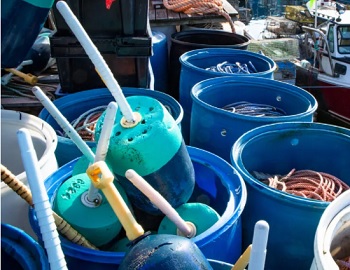
Lobstermen worry looming deadline for new regulations comes ‘too soon’ to change gear
At the beginning of the year, Maine lobstermen were having a hard time finding the new gear that is being required to help protect right whales. Though suppliers are now starting to see these new weak ropes and links come in, they haven’t received a flurry of new orders despite the looming spring implementation date. Starting on May 1, lobstermen, depending on where they fish, will have to have ropes running from their buoys to traps that can break with 1,700 pounds of force, or have inserts in the line that allow it to snap easier should a whale ever get entangled in them. >click to read< 11:15

Maine: 2021 Lobster Harvest the Most Valuable in the History of the Fishery
According to recently updated data from the Maine Department of Marine Resources, 2021 was the most valuable year in the history of Maine’s lobster fishery. At $724,949,426, the landed value for the iconic fishery jumped by 75 percent over 2020, by far the single largest increase in value, year over year. Of note, the increase in value from 2020 to 2021, $312,464,172, was more than the total landed value in 2009. “The Maine lobster industry remains a cornerstone of our states coastal economy and identity because of the uncompromising commitment to quality that follows every lobster, from trap to table,” said Governor Janet Mills. “I will continue to work tirelessly to support this vital Maine heritage industry.” >click to read< 17:09

Maine considers fund for lobster fishermen/gillnetters hurt by whale rules
Maine is by the far the most significant lobster fishing state in the country, and members of the state’s industry have warned they will suffer because of the new rules. A proposal from Democratic Rep. Holly Stover of Boothbay would create the fund, which would provide grants for lobster fishermen as well as some fishermen who harvest other species with gillnets. “The lobster industry is an economic driver of our local economy, hands down,” Stover said. “This is not a fisheries disaster, this is an economic disaster.” >click to read< 11:18

Maine Granted Intervenor Status in Lawsuit Challenging Federal Regulations
Governor Janet Mills announced today that the Maine Department of Marine Resources (DMR) has been granted intervenor status in Maine Lobstermen’s Association v National Marine Fisheries Service, a lawsuit before the U.S. District Court in Washington, D.C. that challenges Federal regulations hurting Maine’s vital lobster industry. It is the Mills Administration’s latest effort to stand up for the lobster industry and its hard working men and women in the face of the Federal government’s burdensome proposal. >click to read< 09:26

“No Industrial Scale Fish Factory in Frenchman Bay” – American Aquafarms reps, critics take sides
Longtime South Gouldsboro lobsterman Frank Hammond has fished for decades in “The Hop,” an area northwest of Long Porcupine Island, where one of American Aquafarms’ sites would be located. He estimates about 15 to 20 lobstermen fish there from South Gouldsboro, Hancock, Sorrento and Lamoine. “I am dead against it. There is nothing to gain from this,” Hammond said at Saturday’s event. “The fishermen will never go for it if they’re going raise the fish in The Hop.” Another South Gouldsboro lobsterman, Jerry Potter, echoed Hammond. >click to read< 08:34
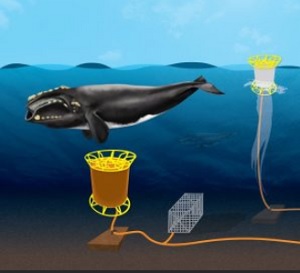
Fed Right whale plan could mean lobster industry changes – a reinvention of the fishery as we know it
Federal officials recently released plans,,, But it’s the risk reduction target, an aggressive 98 percent, that Maine Department of Marine Resources officials said means only one thing, “a complete reinvention of the fishery as we know it.” The conservation framework, an addition to the 582-page biological opinion, creates a four-phased approach to all but eliminate the death and serious injury of the whales in federally managed fishing grounds. The first phase calls for a 60 percent reduction in right whale deaths and serious injuries this year. Patrice McCarron, Maine Lobstermen’s Association, fears the industry can’t sustain that level of change. “If you look at the changes we’ve made over the last 25 years, there’s not a lot left to give,”, >click to read< 10:27
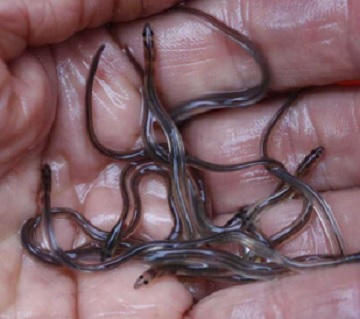
Elver eels rocket back up in value!
Maine is home to the U.S.’s only significant fishery for the baby eels, which are called elvers, and it’s taking place right now. Prices tanked last year due to disruption to the worldwide economy caused by the onset of the coronavirus pandemic. This year, the fishery is experiencing a return to normalcy. The tiny, wriggling fish are worth $1,634 per pound to fishermen, the Maine Department of Marine Resources reported on Monday. They’ve been worth between $1,300 and $2,400 per pound every year since 2015, except last year, when they were worth $525. >click to read< 11:22
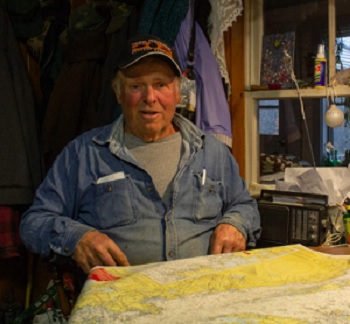
Fishermen, DMR: New North Atlantic Right Whale regulations could cripple lobster industry
The proposal, released in late December 2020, includes measures like regional gear marking, breakaway rope, extra traps per trawl line and restrictions on certain fishing areas. But it is the emphasis placed on ropeless fishing traps that has officials at the Maine Department of Marine Resources most concerned. In its Biological Opinion regarding right whales and the fishing industry, NMFS identifies ropeless fishing as a solution, among others, to reduce whale entanglements that cause death or serious injury. DMR argues that ropeless gear is largely under-researched and unaffordable. DMR used EdgeTech traps to estimate cost increases associated with converting to ropeless fishing,,, An EdgeTech fishing unit costs $3,750, >click to read< 19:36

Maine fishing regulators are closing the state’s richest scallop fishing grounds
The state is closing Cobscook, Whiting and Dennys bays for the rest of the fishing season starting Sunday to help conserve the scallop population, the Maine Department of Marine Resources said Friday. Cobscook Bay is home to some of the most productive scallop fishing in the state. Maine is also closing a handful of other scallop fishing areas around the state, including instituting a partial closure of western Casco Bay, >click to read< 13:27
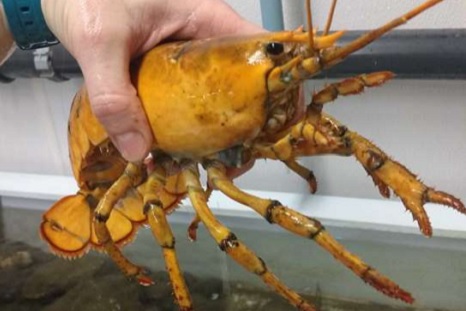
Maine lobsterman catches 1 in 30 million yellow lobster named Banana, and donates it to UNE
A Maine lobsterman caught a rare one in 30 million yellow lobster and donated it to the University of New England. Tenants Harbor lobsterman Marley Babb caught the lobster and reached out to the university after first contacting the Maine Department of Marine Resources. The Department of Marine Resources’ Jessica Waller is working on a lobster research project with UNE’s Markus Frederich. She contacted him and asked whether UNE might be interested in housing the lobster. >click to read< 20:13
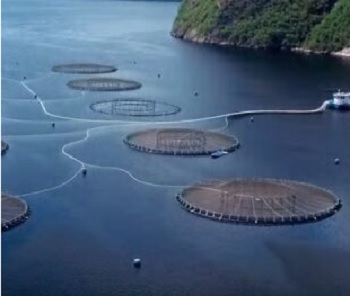
Proposed Frenchman Bay salmon farm plan prompts call for review of state licensing rules
Protect Maine’s Fishing Heritage is calling for the Maine Department of Marine Resources to not only reject an as-of-yet unfiled proposal for a roughly 110-acre penned salmon fishery, but also revise the rules governing how such projects get approved. The group argues that without proper regulatory constraints, the state’s fast-growing aquaculture industry could disrupt traditional fishing activity and overtake the coast with large, 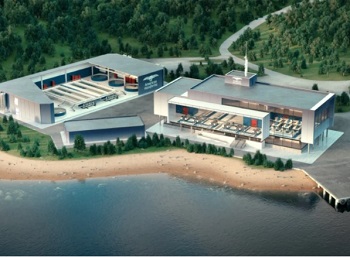 industrial fish farm operations. In October, American Aquafarms entered into an agreement to purchase the Maine Fair Trade Lobster facility in Gouldsboro, where it plans to develop its hatchery and processing facilities, officials said in a news release. Backed by Norwegian investor Mikael Roenes, the American Aquafarms proposal includes 30 150-foot salmon pens,,, >click to read< 17:37
industrial fish farm operations. In October, American Aquafarms entered into an agreement to purchase the Maine Fair Trade Lobster facility in Gouldsboro, where it plans to develop its hatchery and processing facilities, officials said in a news release. Backed by Norwegian investor Mikael Roenes, the American Aquafarms proposal includes 30 150-foot salmon pens,,, >click to read< 17:37
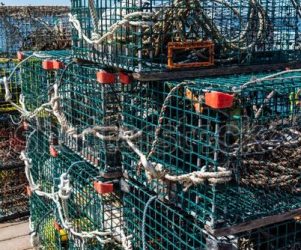
Lobstermen react to proposed NOAA rule
A Jan. 20 public meeting on the latest proposal to reduce the risk of whale entanglements in fishing lines focused on northern and eastern Maine lobster fishing. At this latest meeting, local lobstermen echoed similar concerns they aired when discussions started two years ago: NOAA is relying on incomplete and outdated data, and fishermen are not seeing right whales in Maine waters. NOAA scientists agree that more data would be useful. >click to read< 08:19
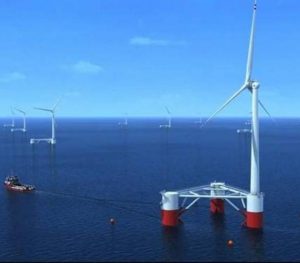
Maine Governor proposes offshore wind farm moratorium
Gov. Janet Mills on Monday proposed a 10 year moratorium (just say no!) on new offshore wind projects in state-managed waters and other actions aimed at calming concerns among the fishing industry about her plan to create the nation’s first floating offshore wind research farm in the Gulf of Maine. In a letter Friday to licensed commercial fishermen, the Democratic governor said she would propose the moratorium to the Legislature. >click to read< 12:38
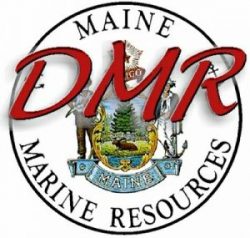
DMR Needs Your Correct Address Information to Distribute CARES Act Relief Funds
In May, the Maine Department of Marine Resources (DMR) notified you that Maine has been allocated $20 million in CARES Act relief funding to support the recovery of Maine’s commercial fishing, seafood, aquaculture, and charter fishing industries from the financial impacts of COVID-19. Following additional guidance from NOAA provided in June, DMR has been working on developing the “spend plan” for these funds, which must be approved by NOAA. DMR anticipates that we will be reaching out to all potentially eligible parties in August 2020. In preparation for that, we want to ensure that we have the most up-to-date contact information for all of our license holders. links, more information, >click to read< 16:59

Judge James Boasberg’s court ruling puts future of Maine lobster industry at risk
United States District Judge James Boasberg’s order found that the National Marine and Fishery Services violated the Endangered Species Act by licensing the lobster fishery. In the second phase of the case, the judge will decide what action is necessary to rectify the situation. The Maine Lobstermen’s Association, an intervenor, and other industry stakeholders around the Gulf of Maine, will submit information for the judge to consider in his ruling.,, Activist Richard Strahan filed a motion in federal court in Bangor to stop fishing in Maine May 15, citing violations of the Endangered Species Act, Maine Public reported. The Maine Department of Marine Resources has no intention of curtailing lobster permits, said spokesperson Jeff Nichols. >click to read< 09:45






